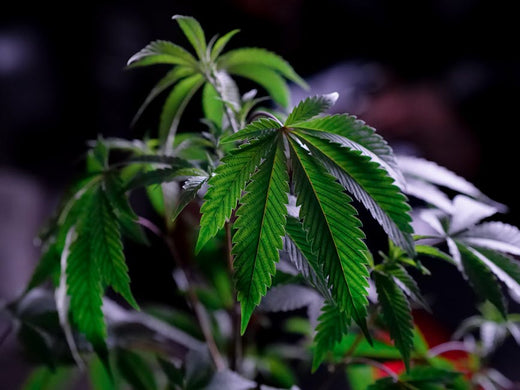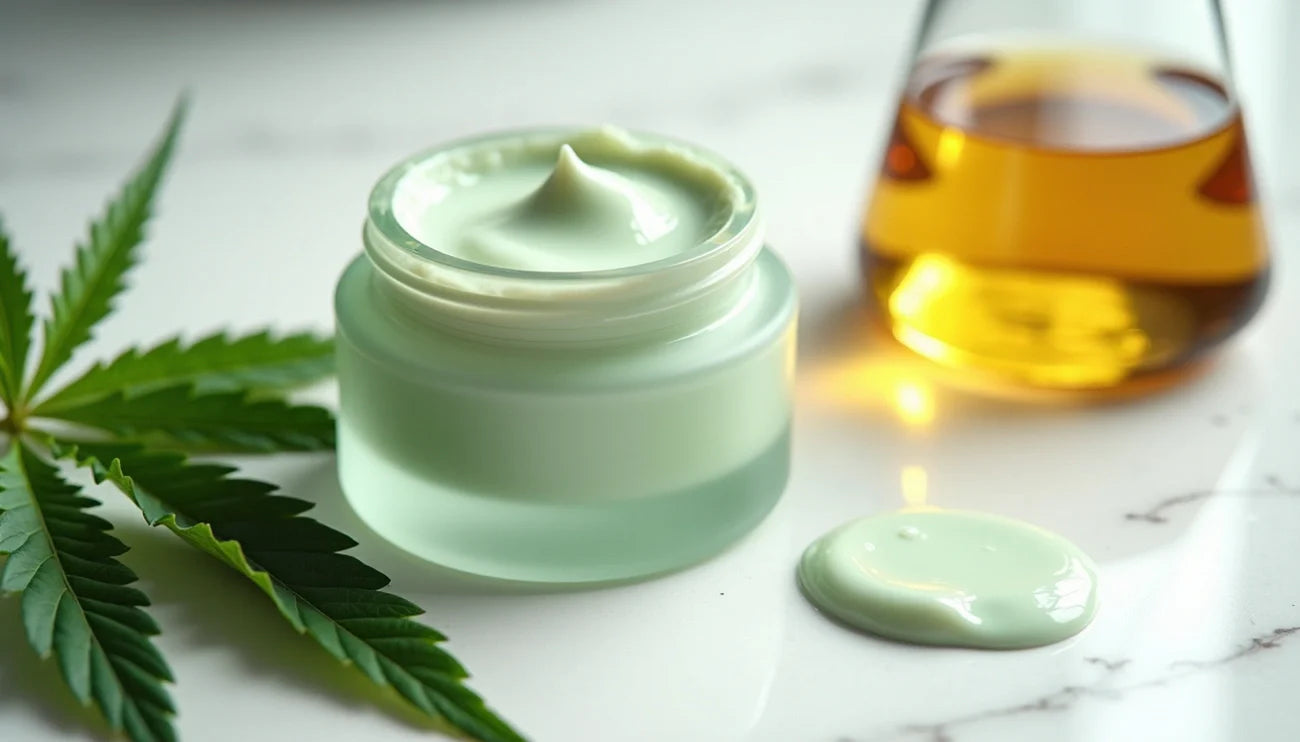Tetrahydrocannabinol is the intriguing compound at the heart of many conversations about cannabis. Often abbreviated as THC, this chemical is the primary active ingredient derived from the cannabis plant, known for its potential to alter the mind. As one of the numerous cannabinoids found in the plant, tetrahydrocannabinol stands out due to its unique psychoactive effects.
- Cannabis Plant: Tetrahydrocannabinol is found in the dried leaves, flowers, stems, and seeds of the Cannabis sativa L plant.
- Cannabinoids: The plant contains at least 125 cannabinoids, each contributing to different effects.
- Psychoactive Effects: THC can temporarily alter mood, thoughts, and perceptions by interacting with specific brain receptors.

Quick tetrahydrocannabinol terms: - cbda - what is delta 8 thc - what is thc
Understanding Tetrahydrocannabinol
Tetrahydrocannabinol, or THC, is the star player in cannabis. It's the compound that gives cannabis its well-known psychoactive effects. But not all THC is created equal. The most famous form is delta-9 THC.
What is Delta-9 THC?
Delta-9 THC is the most abundant and well-researched form of THC in the cannabis plant. It's the compound responsible for the "high" people experience when using cannabis. Delta-9 THC interacts with the brain's cannabinoid receptors, leading to changes in mood, perception, and even coordination.
Intoxicating Effects
The intoxicating effects of delta-9 THC can vary widely from person to person. They depend on factors like dosage, method of consumption, and individual tolerance. Generally, these effects might include:
- Euphoria: A feeling of happiness or well-being.
- Altered Perception: Changes in how you perceive time, space, or sensory experiences.
- Relaxation: A sense of calm or reduced stress.

Beyond Delta-9 THC
While delta-9 THC gets most of the attention, there are other forms of THC, like delta-8 THC. These variants can also have intoxicating effects, but they are typically less potent than delta-9 THC.
Understanding these different forms and their effects is crucial for anyone exploring cannabis products. It helps in making informed decisions about which products might suit their needs or preferences.
In the next section, we'll dig into how THC affects the body, exploring its interaction with brain receptors and the resulting psychoactive effects.
How THC Affects the Body
When it comes to tetrahydrocannabinol (THC), the effects on the body are all about interaction with the brain. THC plays a leading role in altering mood, perception, and overall mental state.
Psychoactive Effects
THC is famous for its psychoactive effects. These occur because THC interacts with cannabinoid receptors in the brain, primarily the CB1 receptors. This interaction leads to a cascade of changes in brain chemistry, affecting how we think, feel, and experience the world around us.
Mood Changes
One of the most noticeable effects of THC is its ability to change mood. Many users report feeling euphoric or relaxed after consuming THC. However, mood changes can vary. Some might feel anxious or paranoid, especially at higher doses. The key is understanding your own tolerance and how THC affects you personally.
Perception Alterations
THC can also alter perception. This means it can change how you perceive time, space, and sensory experiences. For instance, time might feel like it's moving slower, or colors might seem more vivid. These perception changes are part of what makes the THC experience unique, but they can also be disorienting for some users.
The Role of Dosage and Method
The effects of THC can differ based on how much you take and how you consume it. Smoking or vaping tends to produce quicker, more intense effects, while edibles take longer to kick in but may last longer. It's crucial to start with small doses, especially for beginners, to gauge how your body reacts.
Understanding these effects helps in making informed choices about THC consumption, ensuring a safe and enjoyable experience. In our next section, we'll explore the different forms of THC available, from herbs to tinctures.
Different Forms of THC
When it comes to exploring tetrahydrocannabinol (THC), it's important to know the various forms it can take. Each form offers a unique way to experience THC, and understanding these options can help you choose what suits you best.
Herbs
The most traditional form of THC comes from the dried parts of the cannabis plant, often referred to as herbs. These include the leaves, flowers, and stems. People typically smoke these herbs in joints, pipes, or bongs. This method is popular for its quick onset of effects, as THC enters the bloodstream rapidly through the lungs.
Hash
Hash, or hashish, is another form of THC that has been used for centuries. It is made by compressing the resinous glands of the cannabis plant, known as trichomes. Hash is usually more potent than regular herbs because it contains a higher concentration of THC. You can smoke it, vaporize it, or even use it in edibles.
Hash Oil
Hash oil, also known as cannabis oil, is a concentrated form of THC extracted from the cannabis plant. It’s incredibly potent and can be used in various ways, such as vaping, dabbing, or adding to foods. Because of its high concentration, a little goes a long way, and it's important to use it carefully.
Edibles
Edibles are foods and drinks infused with THC. These can range from brownies and gummies to teas and sodas. The key thing to remember with edibles is that they take longer to kick in—typically 30 minutes to 2 hours—but the effects last much longer compared to smoking or vaping. Start with a small amount to see how it affects you, as it's easy to consume too much.
Tinctures
Tinctures are liquid extracts of THC, usually made with alcohol or oil. They are consumed by placing a few drops under the tongue or adding them to food or drinks. This form is discreet and allows for precise dosing, making it a popular choice for those who want controlled effects without smoking.
Each form of THC has its own set of advantages and considerations. Whether you prefer the quick hit of smoking herbs or the long-lasting effects of an edible, there's a form of THC that's right for you. Next, we'll dig into the safety and legal considerations surrounding THC use.
Safety and Legal Considerations
When exploring tetrahydrocannabinol (THC), it's crucial to understand the safety and legal aspects involved. Knowing these can help you make informed decisions and avoid potential pitfalls.
FDA Concerns
The FDA has raised several concerns about THC products, particularly those not evaluated or approved for safe use. Delta-8 THC, a variant of THC, is often marketed without proper oversight. The FDA has received reports of adverse events related to these products, including hallucinations, vomiting, and anxiety. These incidents highlight the importance of cautious consumption and awareness of product quality.
Legality
THC's legal status is complex. Federally, marijuana—a primary source of THC—is classified as a Schedule I drug, meaning it's considered to have high abuse potential with no accepted medical use. However, many states have enacted laws that contradict this federal stance, allowing both medical and recreational use. As of October 2024, 24 states plus the District of Columbia have legalized recreational marijuana, while 38 states permit medical use. It's essential to know your local laws, as they vary widely.
Synthetic Cannabinoids
Synthetic cannabinoids, like those found in some delta-8 THC products, are another area of concern. These are lab-created substances designed to mimic natural cannabinoids. While they can offer similar effects, their safety profile is less understood, and they may pose significant health risks. Unlike naturally occurring THC, synthetic versions can have unpredictable and potentially dangerous effects.
Understanding the safety and legal considerations of THC is vital for responsible use. Whether you're considering trying THC for the first time or exploring new forms, staying informed will help you steer these complexities safely. Next, we'll address some frequently asked questions about tetrahydrocannabinol to clear up common misconceptions.
Frequently Asked Questions about Tetrahydrocannabinol
What is tetrahydrocannabinol as a drug?
Tetrahydrocannabinol (THC) is the primary psychoactive compound found in the cannabis plant. It is responsible for the "high" that users experience. When consumed, THC interacts with the brain, leading to mood changes and altered perceptions. It stimulates the release of dopamine, a "feel-good" hormone, which can create feelings of euphoria. However, the effects of THC can vary depending on the concentration and the individual's physiology. Higher concentrations can lead to more intense effects, including hallucinations or even paranoia in some cases.
Does THCA get you high?
THCA, or tetrahydrocannabinolic acid, is the precursor to THC. It is found in raw cannabis and is not psychoactive. This means that in its natural form, THCA does not produce the high associated with THC. However, when cannabis is heated (through smoking, vaping, or cooking), THCA undergoes a process called decarboxylation, converting it into THC. This conversion is what activates the psychoactive properties, making it capable of intoxicating effects.
Is tetrahydrocannabinol in CBD?
CBD, or cannabidiol, is another cannabinoid found in the cannabis plant, often derived from hemp. Unlike THC, CBD is non-psychoactive and does not produce a high. Hemp plants are specifically bred to contain low levels of THC—less than 0.3%—to comply with legal standards. This low concentration ensures that CBD products do not cause intoxicating effects. However, it's important to note that some CBD products may have trace amounts of THC, depending on how they are processed. Always check product labels and third-party testing results to understand the THC concentration in any CBD product.
Understanding these aspects of tetrahydrocannabinol can help clarify common misconceptions and guide you in making informed choices.
At Sow Eden, we believe in the power of nature to support wellness. Our commitment is to provide premium organic CBD products that are designed to improve your well-being. With a focus on holistic solutions, we use unique combinations of cannabinoids like CBD-A and CBG-A, along with natural botanicals such as Ginger Root and Lemon Peel, to promote immune support.
Our products are crafted with care and precision to ensure quality and purity. We understand the complexities of cannabinoids like tetrahydrocannabinol and strive to offer products that are safe and effective. By focusing on non-intoxicating compounds, we aim to provide the benefits of the cannabis plant without the psychoactive effects of THC.
For those interested in exploring the potential of CBD for wellness, we invite you to find our range of offerings that are designed with your health in mind. Visit our Wellness Collection to explore our premium products and take a step towards a more balanced lifestyle.
By choosing Sow Eden, you're not just selecting a product; you're embracing a lifestyle that values wellness, quality, and natural solutions.




